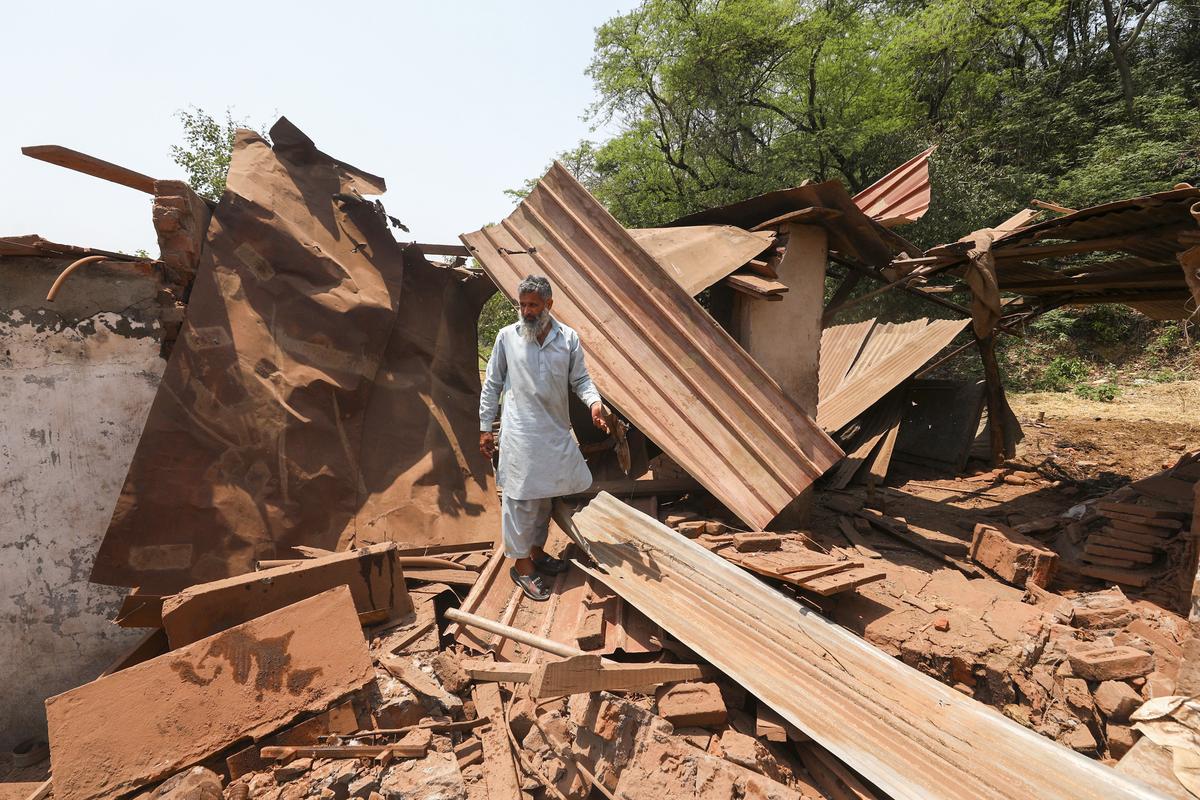| Poonch: Removing fear psychosis, trauma a big task | | CROSS BORDER SHELLING AFTERMATH | |  Early Times Report Early Times Report
Jammu, June 9: Although peace has prevailed in the shelling-affected Poonch town, removing fear psychosis and trauma were the biggest task before the authorities.
In the intervening night of May 6 and 7, the border town of Poonch in Jammu and Kashmir became the epicenter of one of the most intense cross-border shelling episodes in recent history, following the Operation Sindoor in response to a terror attack in Pahalgam. The relentless bombardment from Pakistan, lasting from May 6 to May 10, claimed at least 14 civilian lives in Poonch alone, injured over 60, and left homes, schools, and religious institutions in ruins. The psychological toll on the residents has been profound, with fear, grief, and trauma permeating the community. Civil society in Poonch has since rallied to address this “fear psychology,” emphasizing resilience and rehabilitation to restore normalcy.
The shelling was unprecedented in its ferocity, targeting Poonch town, which had historically been spared such intense attacks compared to villages closer to the Line of Control (LoC).
The deaths of children, including 12-year-old twins Zain Ali and Urwa Fatima at Christ School, and 13-year-old Vihan Kumar, struck a particularly devastating blow. Schools, typically safe havens, became targets, with 23 institutions damaged and only 16% of students returning when they reopened on May 19.
Parents expressed ongoing fear, with many families relocating to Jammu to escape the threat of renewed shelling. The lack of bunkers in Poonch town, unlike in LoC villages, left residents feeling exposed and vulnerable.
The psychological impact on Poonch’s residents is multifaceted. The immediate shock of the shelling, coupled with the absence of preparedness, instilled a pervasive sense of helplessness. Families were forced to flee, often barefoot, clutching belongings or livestock.
Grief has been a dominant emotion, particularly for those who lost loved ones. Rameez Khan, a teacher battling life-threatening injuries, mourns his twins, killed in their home.
Displacement has further intensified mental health challenges. Thousands sought refuge in government-run relief camps, and many have not returned, fearing an unstable ceasefire. The low school attendance reflects ongoing anxiety, with parents hesitant to send children back to vulnerable areas. |
|
